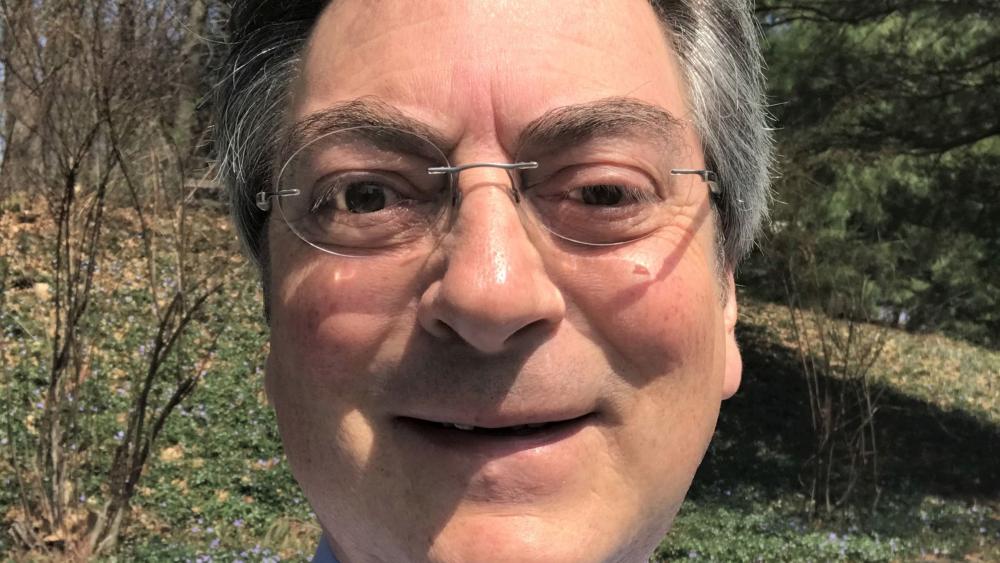
UNIVERSITY PARK, Pa. — The Department of Animal Science in Penn State’s College of Agricultural Sciences has recognized Robert G. Elkin, professor emeritus of avian nutritional biochemistry, as its 2023 Distinguished Poultry Science Alumnus.
After receiving his bachelor’s degree with distinction in animal science from Penn State, Elkin attended graduate school at Purdue University, where he earned his master’s degree in poultry nutrition and his doctorate in nonruminant nutrition. Following graduation, he joined the Purdue animal sciences faculty as an assistant professor and rose through the ranks to full professor.
In 1999, he returned to Penn State as the head of the Department of Poultry Science, serving in that position until the department was combined with the Department of Dairy and Animal Science to form the current Animal Science Department in 2012.
“We are pleased to recognize Bob for his outstanding contributions to the poultry industry and to the department,” said Adele Turzillo, head of the Department of Animal Science. “Serving as head of the Department of Poultry Science for 13 years, he had a profound influence, facilitating many educational programs and securing resources for poultry research.”
She noted his leadership in establishing the successful poultry and avian science minor, which he continued to coordinate until his recent retirement.
Elkin expressed gratitude to the Department of Animal Science for this “tremendous honor.”
“Never in my wildest dreams would I have believed that this 18-year-old freshman from the suburbs of New York City, who wanted to be a dog and cat vet, would end up undertaking a 47-year career as a nutritional biochemist working with chickens and have the opportunity to return to Penn State as an administrator and faculty member,” he said.
Elkin mentioned three people who greatly influenced his career: the late Roland Leach, professor emeritus of poultry science at Penn State; Roger Newton, of the former drugmaker Parke-Davis; and Professor Wolfgang Schneider, of the University and Biocenter Vienna, Austria.
Leach steered him toward graduate school and research in poultry nutritional biochemistry. Newton led the development of Lipitor — the most successful drug in the history of the pharmaceutical industry — and provided statins and other drugs for Elkin’s research aimed at lowering the cholesterol content of eggs. Schneider hosted Elkin in 1992-93 as a Fulbright Scholar in his lab, where Elkin acquired molecular biology skills that he employed there and in his research at Purdue and Penn State. Elkin subsequently co-authored eight refereed journal articles with Newton and Schneider.
The Fulbright Scholar Award to work with Schneider was among Elkin’s notable international opportunities. Elkin subsequently returned to Vienna for two months in 1995 to conduct research in Schneider’s lab, supported by a fellowship from the Organization for Economic Cooperation and Development.
In 1994, Elkin served as the resident director of the Purdue Japan Corporate Internship Program, for which he oversaw the internships of 10 Purdue ag undergraduates who worked for companies and organizations in the Tokyo area. At Penn State, he organized and co-led two poultry science study tours to the Netherlands (2010) and to Germany (2014).
In 2021, he was appointed to a two-year membership on the Fulbright Austria Alumni Advisory Panel, which is composed of volunteer Fulbright Austria alumni whose mission is to strengthen ongoing alumni engagement, support fundraising and act as ambassadors for the Fulbright Austria community.
Elkin has received many honors and awards, including being named a fellow of the Poultry Science Association in 2019 — the highest award bestowed by the association for professional distinction, contributions to the field of poultry science and service to the association.
Also noteworthy is his current service as a member of a committee that is writing the 10th revised edition of the Nutrient Requirements of Poultry report of the National Academy of Sciences, Engineering, and Medicine. This report, last published in 1994, is the “gold standard” in its field and is used by thousands of poultry scientists and nutritionists worldwide.
In addition to coordinating the poultry and avian science minor, Elkin taught primarily in animal nutrition. He served the Department of Animal Science in a variety of positions, including as director of graduate studies and as the coordinator of peer evaluation of teaching. He also was a member of the department, college and University promotion and tenure committees and was the college ombudsperson from 2013 to 2016.
Elkin has published 76 refereed journal articles, 55 abstracts, four book chapters, and 13 conference proceedings papers. He received several national awards from the Poultry Science Association for his work in reducing cholesterol in eggs. During the past decade, he has collaborated with Kevin Harvatine, professor of nutritional physiology, on studies aimed at the enrichment of eggs and poultry meat with heart-healthy omega-3 fatty acids, jointly publishing nine refereed journal articles.
Elkin has served as an associate editor, section editor or senior associate editor for Poultry Science, the Journal of Applied Poultry Research, Lipids, and Animal Feed Science and Technology, for which he has provided reviews of more than 1,000 manuscripts. He also has been an ad hoc reviewer for more than 240 manuscripts in 66 other journals.
A native of northern New Jersey, Elkin is a second-generation Penn Stater. His late mother, Jean, was a 1947 College of Science graduate and a contemporary of J. Lloyd Huck, namesake of the Huck Institutes of the Life Sciences at Penn State. Like Huck, she began her career as a research chemist at Hofmann-LaRoche. In addition to acknowledging his mother’s influence in choosing to attend Penn State, Elkin posited that his eventual career choice as a nutritional biochemist “may have been genetically predetermined.”
